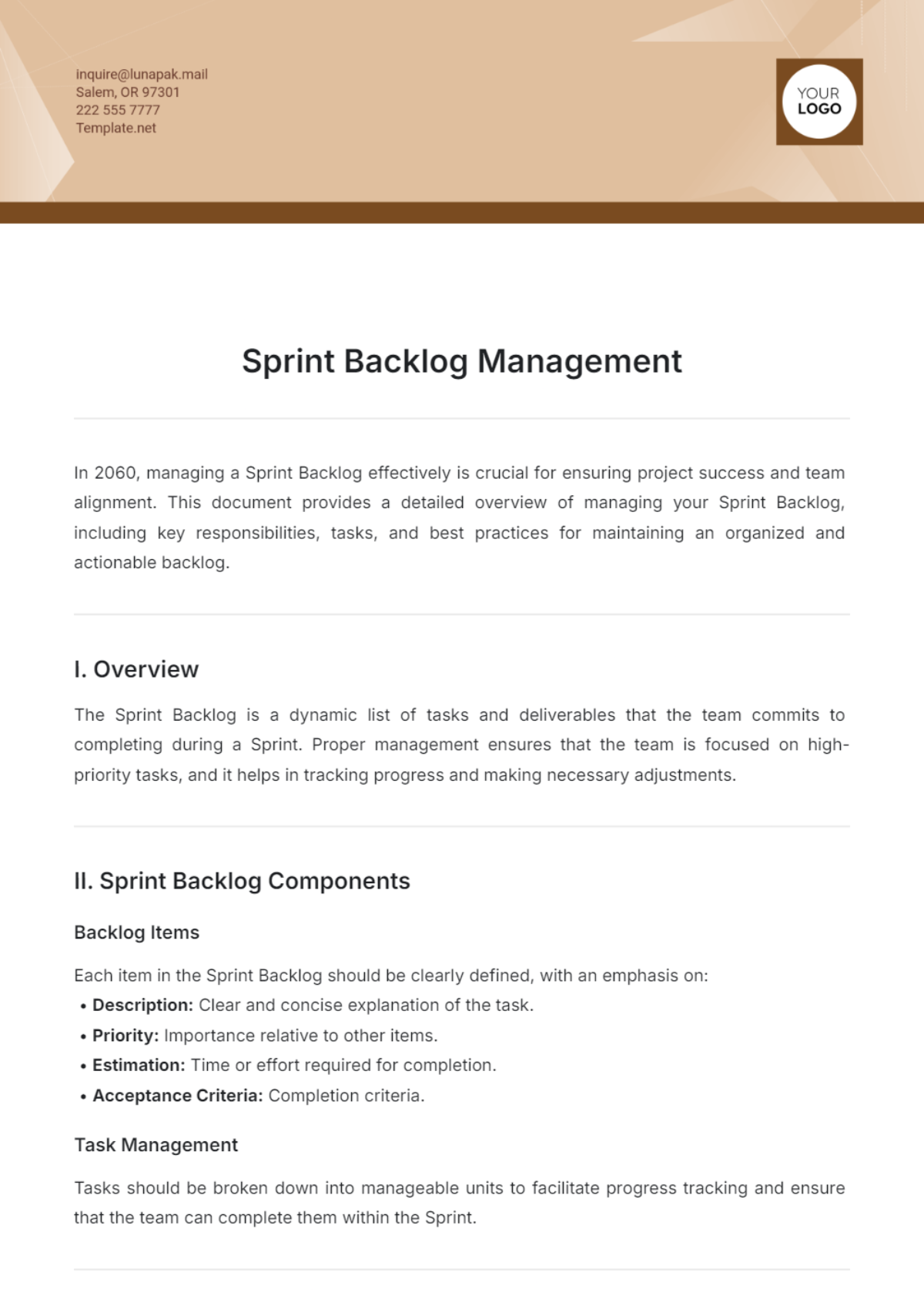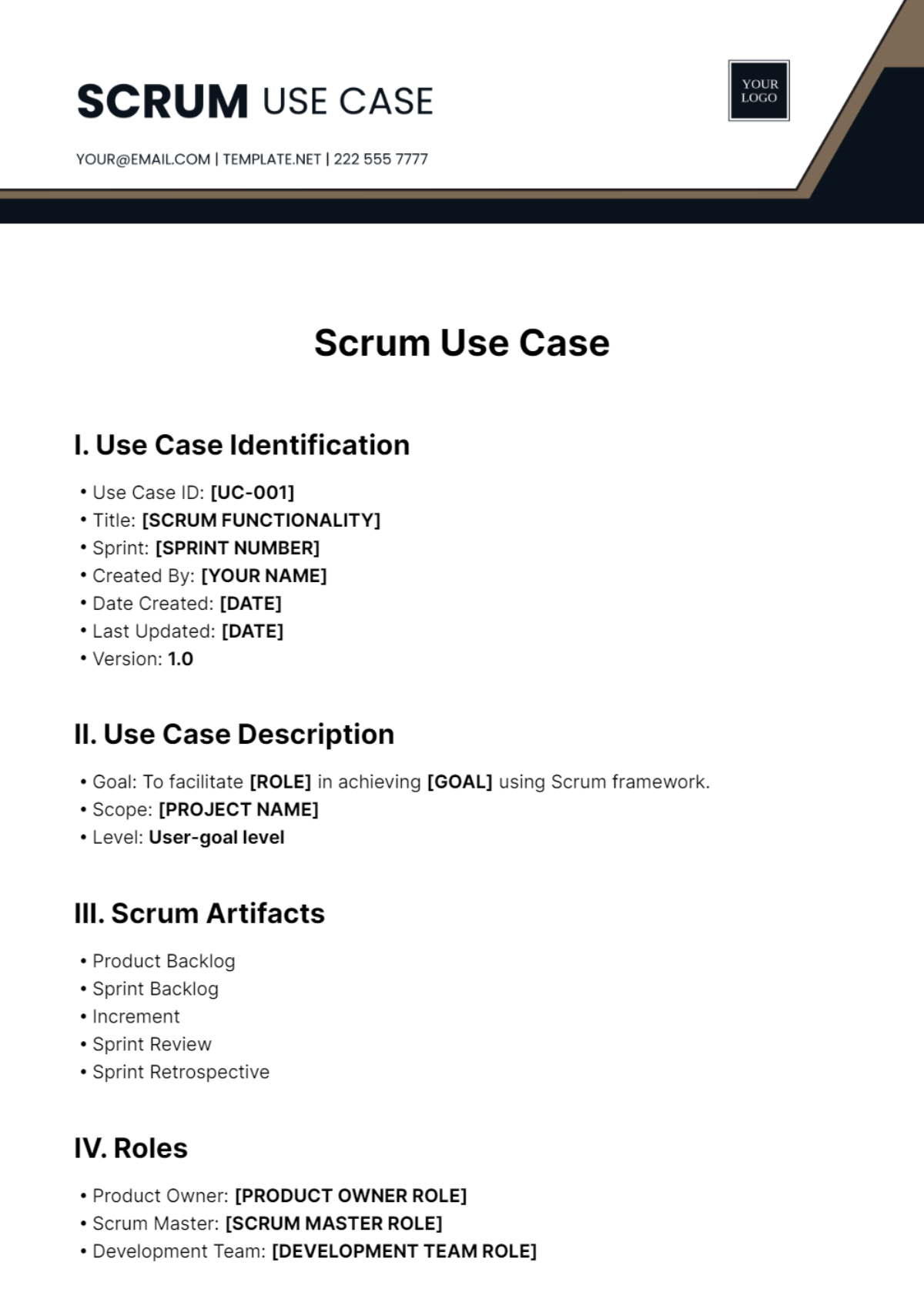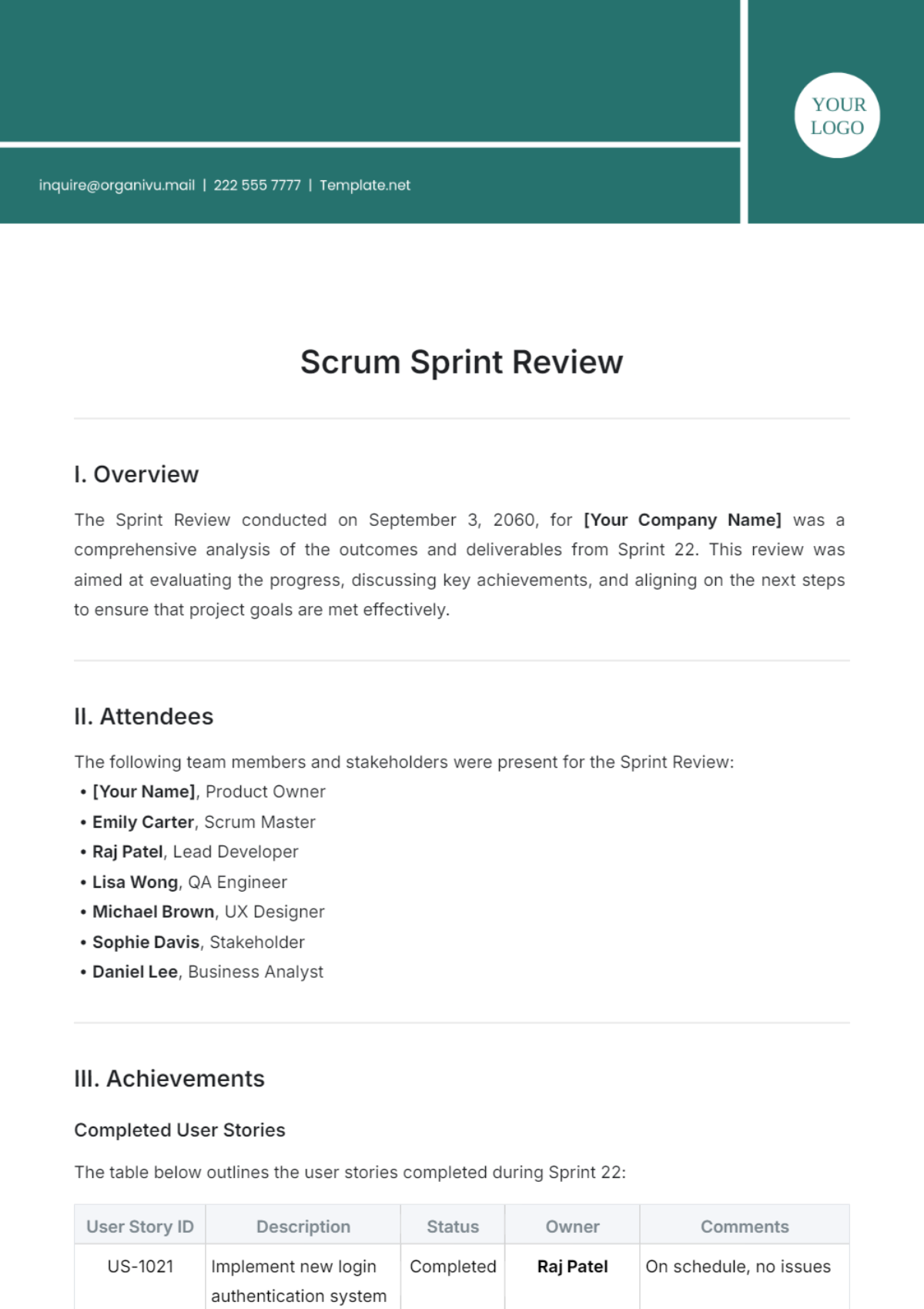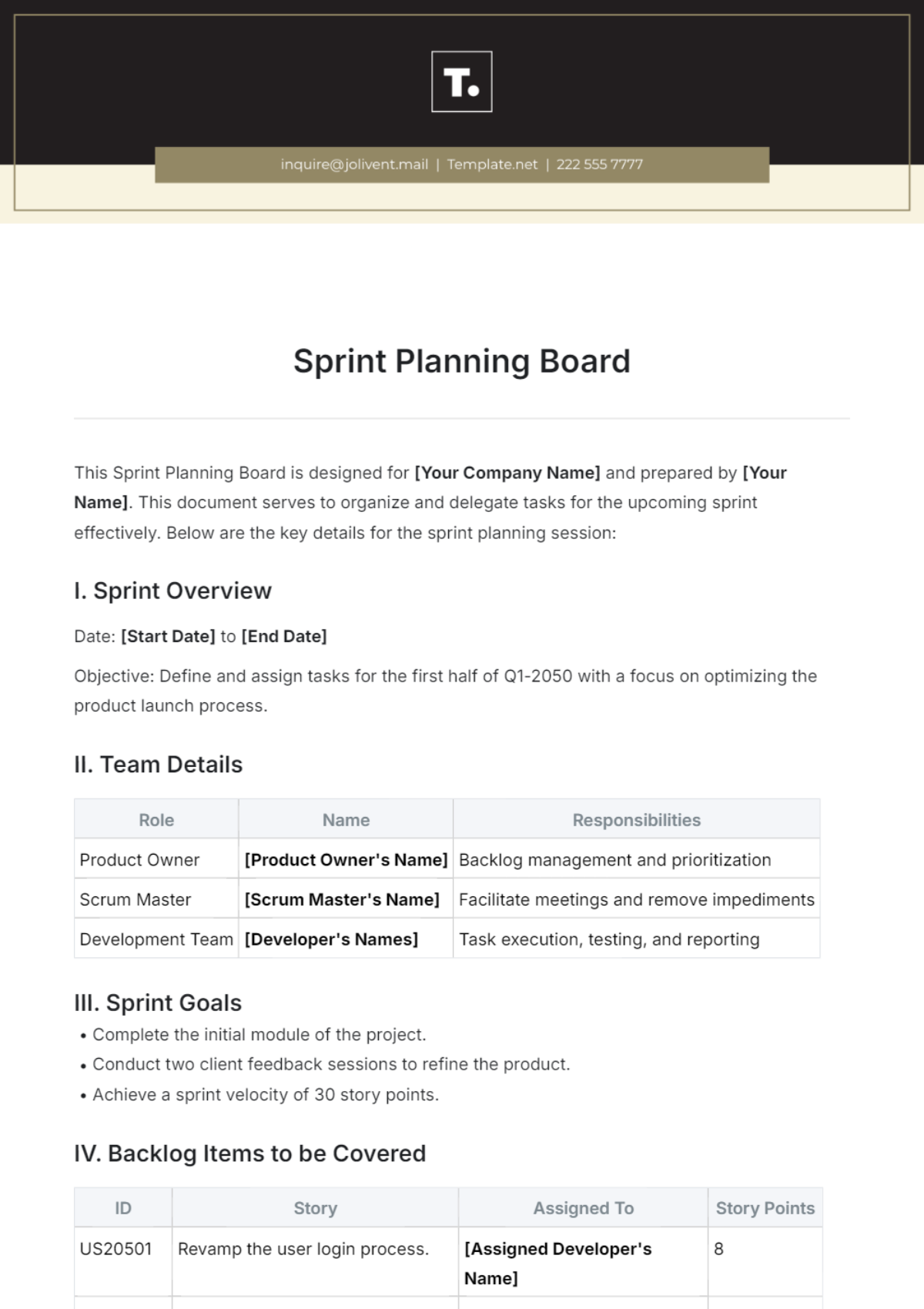Sprint Backlog Management
In 2060, managing a Sprint Backlog effectively is crucial for ensuring project success and team alignment. This document provides a detailed overview of managing your Sprint Backlog, including key responsibilities, tasks, and best practices for maintaining an organized and actionable backlog.
I. Overview
The Sprint Backlog is a dynamic list of tasks and deliverables that the team commits to completing during a Sprint. Proper management ensures that the team is focused on high-priority tasks, and it helps in tracking progress and making necessary adjustments.
II. Sprint Backlog Components
Backlog Items
Each item in the Sprint Backlog should be clearly defined, with an emphasis on:
Description: Clear and concise explanation of the task.
Priority: Importance relative to other items.
Estimation: Time or effort required for completion.
Acceptance Criteria: Completion criteria.
Task Management
Tasks should be broken down into manageable units to facilitate progress tracking and ensure that the team can complete them within the Sprint.
III. Roles and Responsibilities
Role | Responsibility |
|---|---|
Product Owner | Define and prioritize backlog items, and ensure alignment with goals. |
Scrum Master | Facilitate the Sprint Planning and Review meetings, address impediments. |
Development Team | Complete tasks as per the Sprint Backlog, provide updates on progress. |
IV. Sprint Backlog Maintenance
Regular Updates
The Sprint Backlog should be updated regularly to reflect the current status of tasks. This includes:
Daily Stand-ups: Brief meetings to discuss progress and any obstacles.
Sprint Review: Evaluation of completed items and adjustments based on feedback.
Adjustments and Refinement
Adjustments may be required based on:
Stakeholder Feedback: Incorporate feedback received during Sprint Reviews.
Team Input: Adjust tasks based on team capacity and technical insights.
V. Tools and Techniques
Tools
Effective management of the Sprint Backlog can be facilitated through various tools, such as:
Tool Name | Description |
|---|---|
JIRA | Project management tool for tracking tasks and progress. |
Trello | Visual tool for managing and organizing tasks. |
Asana | Task management tool with collaboration features. |
Techniques
Kanban Boards: Visual representation of tasks in different stages.
Burn Down Charts: Graphs showing the progress of completing backlog items.
VI. Communication and Reporting
Communication Channels
Maintain clear communication channels to ensure that all team members are informed and aligned:
Email: Regular updates and notifications ([Your Company Email]).
Internal Messaging Systems: Real-time communication and collaboration.
Reporting
Generate reports on Sprint progress and backlog status to provide insights to stakeholders. Reports should include:
Completed Tasks: Number and description.
Pending Tasks: List and status.
Issues and Risks: Any challenges faced during the Sprint.
VII. Contact Information
For any queries or further assistance, please contact:
[Your Company Name]
Phone: [Your Company Number]
Email: [Your Company Email]
Contact Person: [Your Name]
Email: [Your Email]




